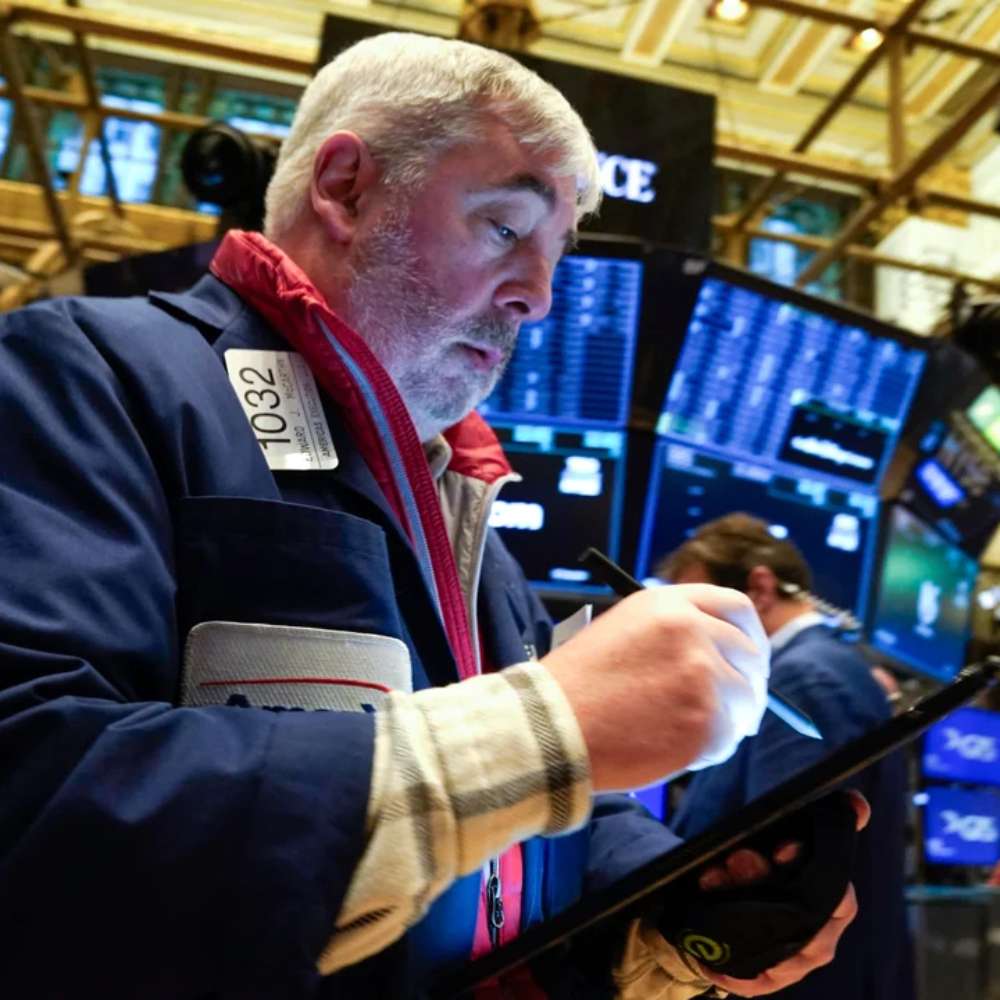European Markets React to U.S. Tariffs
European stock markets opened sharply lower on Monday as U.S. trade tariffs sent ripples through global markets. The pan-European Stoxx 600 index fell by 1.34% at 8:30 a.m. London time, with all major sectors registering losses. Among the hardest hit were the automobile and technology sectors. The Stoxx 600 autos index dropped by 3.5%, with some companies seeing even steeper declines.
French car parts supplier Valeo saw a drop of 8.3%, while automaker Renault fell by 4%. German automotive giants BMW, Volkswagen, and Porsche all saw their shares drop by around 5%. Tech, industrials, and mining indexes also lost around 2%, further contributing to the negative sentiment across the continent. Germany’s DAX index was down by over 1.7% in early trade, signaling a broad market downturn.
U.S. President Imposes Tariffs on Key Trading Partners
The market turmoil comes in the wake of the U.S. President’s recent decision to impose trade tariffs. Over the weekend, President Trump announced that a 25% tariff would be placed on imports from Mexico and Canada, with a 10% levy on goods from China. This move has prompted retaliatory actions from these countries. Canada has already imposed sanctions on U.S. imports, and Mexico has threatened similar measures. The decision has created widespread uncertainty in global markets, particularly in Europe, where concerns about the potential impact of tariffs on trade with the U.S. are escalating.
When questioned about the possibility of tariffs being imposed on goods from the United Kingdom and the European Union, President Trump commented that both regions were “out of line,” although he reserved particular criticism for the EU. He indicated that a trade deal with the U.K. could be negotiated, citing the more balanced nature of U.S.-U.K. trade relations.
However, he stood firm on the idea of imposing tariffs on the EU, calling the U.S. trade deficit with the bloc an “atrocity.” He reiterated his belief that the EU had “really taken advantage” of the U.S. in trade matters. In response, a spokesperson for the EU stated that the bloc would “respond firmly” to any new tariffs that the U.S. imposed on European goods.
Global Market Impact
The ripple effect of President Trump’s tariff decisions extended beyond European markets. Asian-Pacific markets traded lower overnight as investors reacted to the news, and U.S. stock futures also tumbled on Sunday night. Investors are weighing the long-term effects of the tariffs, particularly concerning the potential economic consequences and their impact on corporate profits. The growing trade tensions between the U.S. and its key trading partners have created significant volatility in global markets, as businesses and consumers brace for the broader implications of a potential trade war.
As the situation continues to unfold, market participants remain uncertain about the future trajectory of global trade relations, with many focusing on the potential for further retaliatory measures and the economic strain that may result from escalating tariffs.







